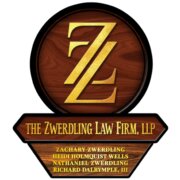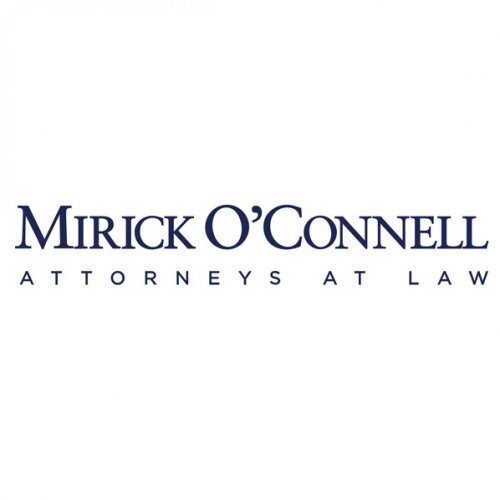Best Antitrust Litigation Lawyers in United States
Share your needs with us, get contacted by law firms.
Free. Takes 2 min.
Or refine your search by selecting a city:
List of the best lawyers in United States
About Antitrust Litigation Law in United States
Antitrust litigation in the United States involves legal disputes related to violations of competition laws. These laws are designed to promote fair competition and prevent monopolies or unfair business practices that can harm consumers or other businesses. The primary statutes governing antitrust issues are the Sherman Act, Clayton Act, and Federal Trade Commission (FTC) Act. Antitrust litigation can encompass a wide range of issues, including price-fixing, market allocation, bid rigging, monopolization, and mergers that may substantially lessen competition. Both civil and criminal penalties can result from antitrust violations, with actions brought by government agencies, private individuals, or businesses.
Why You May Need a Lawyer
You may require legal assistance in antitrust litigation for several reasons. If your business is accused of engaging in anti-competitive practices or is being investigated by a federal or state agency, legal representation is essential to protect your rights. You may also need a lawyer if your business has been harmed by another company’s anti-competitive behavior, such as exclusion from markets, price-fixing, or collusion. Navigating antitrust laws can be highly complex, and legal counsel can help ensure compliance, defend against lawsuits or investigations, pursue damages, or negotiate settlements. Because antitrust cases often involve large financial stakes and complex economic analyses, having an experienced attorney is critical.
Local Laws Overview
In the United States, antitrust litigation is governed primarily by federal law, but every state also has its own antitrust statutes that may offer additional protections or remedies. Key federal laws include:
- Sherman Act: Prohibits monopolization, attempts to monopolize, and unreasonable restraints of trade, including conspiracies and agreements between competitors to fix prices or divide markets.
- Clayton Act: Addresses specific practices not covered by the Sherman Act, such as mergers and acquisitions that may substantially lessen competition, exclusive dealing contracts, and certain types of discriminatory pricing.
- Federal Trade Commission Act: Empowers the FTC to prevent unfair methods of competition and deceptive practices.
State attorneys general can enforce both state and federal antitrust laws. Certain industries, like healthcare, technology, and pharmaceuticals, may face heightened scrutiny due to their economic significance and impact on consumers. Local regulations and recent court decisions can also affect case outcomes.
Frequently Asked Questions
What is considered an antitrust violation?
An antitrust violation occurs when a business or group of businesses engages in conduct that restricts competition, such as fixing prices, rigging bids, dividing markets, or abusing market power to exclude competitors.
Who can file an antitrust lawsuit in the United States?
Federal and state governments, as well as private individuals or companies that have been harmed by antitrust violations, can file lawsuits to seek damages or injunctive relief.
What types of damages can be recovered in antitrust litigation?
Victims of antitrust violations may recover treble damages, meaning three times the actual damages suffered, as well as attorneys’ fees and court costs.
What is the role of the Department of Justice (DOJ) and the Federal Trade Commission (FTC) in antitrust cases?
The DOJ and FTC have authority to investigate and prosecute alleged antitrust violations, block anti-competitive mergers, and issue rules and guidance to promote fair competition.
How long does an antitrust litigation case typically take?
Antitrust cases can be lengthy, often taking several years due to complex factual and economic issues, extensive discovery, and the need for expert testimony.
What is discovery in antitrust litigation?
Discovery is the process by which parties collect and exchange evidence relevant to the claims or defenses in a case, such as documents, emails, and deposition testimony.
Can a criminal conviction result from an antitrust case?
Yes, certain antitrust violations like price-fixing, bid-rigging, and market allocation are also criminal offenses, and individuals or companies can face fines and imprisonment if convicted.
What should I do if I suspect my company is being investigated for antitrust violations?
Consult an experienced antitrust attorney immediately to understand your rights, responsibilities, and the best strategies to respond to the investigation and cooperate with authorities.
Are all monopolies illegal under U.S. law?
No, merely possessing a monopoly is not illegal. Only monopolistic conduct that seeks to gain or maintain power through anti-competitive means is prohibited.
How are class actions used in antitrust litigation?
Consumers or businesses harmed by widespread anti-competitive practices may band together to file a class action lawsuit, seeking collective redress from the offending parties.
Additional Resources
Several governmental bodies and organizations provide information and guidance on antitrust laws and enforcement:
- United States Department of Justice Antitrust Division
- Federal Trade Commission (FTC)
- National Association of Attorneys General (NAAG) Antitrust Division
- American Bar Association, Section of Antitrust Law
- State Attorney General Offices
- Legal aid organizations specializing in business and consumer rights
Next Steps
If you believe you are involved in an antitrust issue or have been affected by anti-competitive practices, it is important to consult with an experienced antitrust attorney as soon as possible. Gather relevant documents and information that may support your case, such as contracts, emails, market data, or communications with competitors. Consider contacting a local bar association for referrals, or reach out to government agencies like the Department of Justice or FTC for guidance. Quick action is important, as antitrust claims are subject to statutes of limitations that limit the time frame for bringing a lawsuit. By seeking qualified legal advice early, you can better protect your rights and interests.
Lawzana helps you find the best lawyers and law firms in United States through a curated and pre-screened list of qualified legal professionals. Our platform offers rankings and detailed profiles of attorneys and law firms, allowing you to compare based on practice areas, including Antitrust Litigation, experience, and client feedback.
Each profile includes a description of the firm's areas of practice, client reviews, team members and partners, year of establishment, spoken languages, office locations, contact information, social media presence, and any published articles or resources. Most firms on our platform speak English and are experienced in both local and international legal matters.
Get a quote from top-rated law firms in United States — quickly, securely, and without unnecessary hassle.
Disclaimer:
The information provided on this page is for general informational purposes only and does not constitute legal advice. While we strive to ensure the accuracy and relevance of the content, legal information may change over time, and interpretations of the law can vary. You should always consult with a qualified legal professional for advice specific to your situation.
We disclaim all liability for actions taken or not taken based on the content of this page. If you believe any information is incorrect or outdated, please contact us, and we will review and update it where appropriate.
Browse antitrust litigation law firms by state in United States
Refine your search by selecting a state.
















